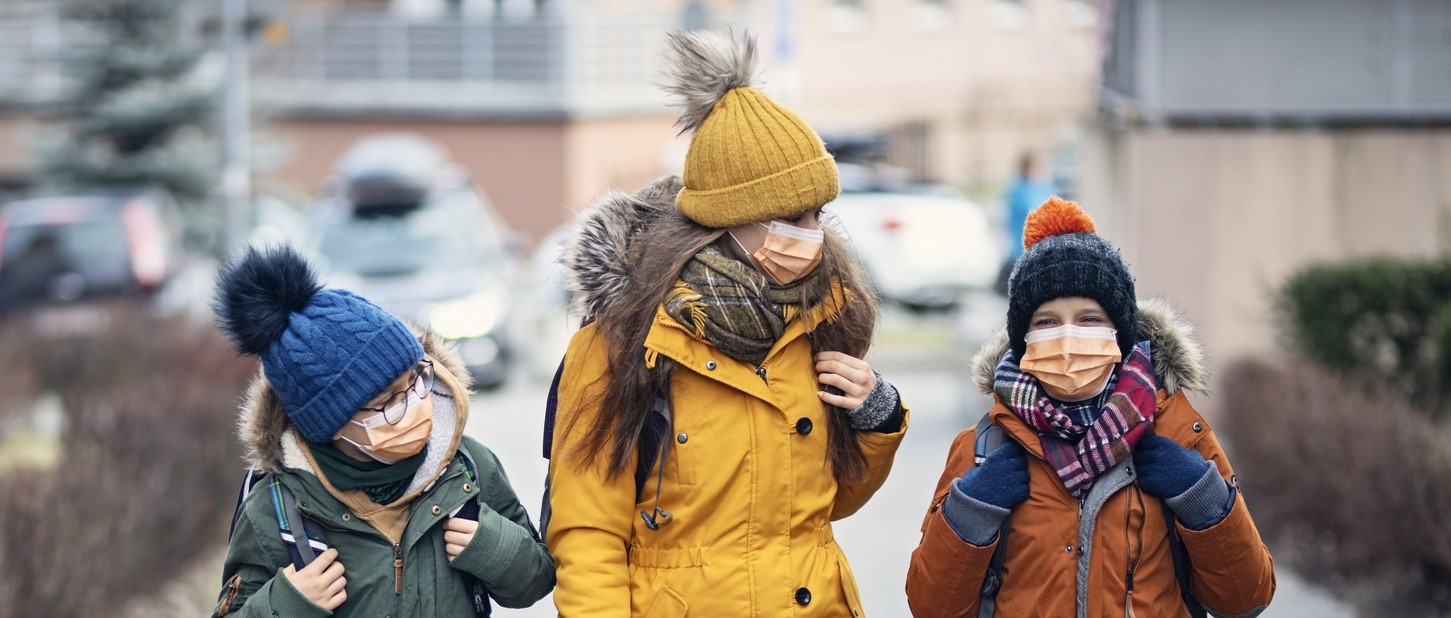
COVID-19: what happens next with the coronavirus outbreak?
Peer reviewed by Dr Sarah Jarvis MBE, FRCGPLast updated by Milly EvansLast updated 7 Feb 2020
Meets Patient’s editorial guidelines
- DownloadDownload
- Share
- Language
- Discussion
Now, two months into the new coronavirus outbreak, the public and scientists are looking for answers as to what will happen next. With the number of infected and dead climbing every day, what will it take to curb the spread and what should we expect to happen?
In this article:
Video picks for Pandemic articles
This feature is now out of date. You can find our latest features and advice on coronavirus and COVID-19 in our coronavirus hub.
The Foreign and Commonwealth Office has advised all UK nationals to leave China where possible. Clearly this also means that nobody from the UK should travel to China unless it is absolutely unavoidable.
In early December 2019, a virus emerged in Wuhan, China, which had never been seen previously. It was found to be part of the coronavirus family which also includes the virus that causes the common cold.
As of 10th February 2020, the number of confirmed cases of novel coronavirus has reached more than 40,000 worldwide. More than 1000 people have died, including one death outside of China. So far there have been eight cases in the UK, with the UK government now introducing strengthened legal powers to impose restrictions on people considered by health professionals to be at risk of spreading the virus. The World Health Organization (WHO) categorises the global risk from the virus as high and the risk within China to be very high. The UK government has raised the risk to the UK from low to moderate.
And with the number of diagnoses rapidly increasing, what needs to happen to stop the situation getting worse?
A new name
The virus will soon be renamed by the International Committee on Taxonomy of Viruses (ICTV) which is charged with coming up with an appropriate and accurate name to make identifying and communicating about the virus easier. The new name of the virus must follow WHO guidelines to avoid previous harm caused by the misnaming of diseases such as swine flu, which led to unnecessary harm to pig populations and pork industries. The guidelines state that the name:
Must not include geographic locations, people's names, types of animal or food, or cultural, population or industry related terms.
Should not include terms which may incite unnecessary fear (such as unknown, death, fatal or epidemic).
May include generic or specific descriptive terms of various aspects of the disease or other identifiers.
We should know the new name of novel coronavirus in the next few days. The name is important to how we communicate about, and how the public will respond to, the disease. There have already been reports of discrimination against Chinese and Asian communities and individuals in the wake of the virus as it has been so heavily linked, including in name, to China and Wuhan.
Update: the disease caused by the virus was officially named Covid-19 on 11th February. The virus itself has been designated SARS-CoV-2 to reflect its close connection to the SARS virus.
Getting prepared
Back to contentsThe international community has created a Strategic Preparedness and Response Plan to protect states with weaker health systems in an attempt to curb the spread of novel coronavirus. Between February and April 2020, the WHO has called for US$675 million to be spent to support health organisations and public health activities to prepare for and respond to infections. The plan aims to:
Limit human-to-human transmission.
Identify, isolate and care for patients early.
Communicate information between and within countries.
Minimise the social and economic impact.
Reduce the spread of the virus from animal sources (where the virus originated).
Address unknown factors and needs.
The money will be spent on establishing international coordination and operational support, improving and building preparedness and response operations and fast-tracking important research and innovation.
Continue reading below
Potential spread
Back to contentsWhilst the official numbers of diagnosed are now over 40,000, the real number of infections is undoubtedly higher. In some people, the virus will be extremely mild and unnoticeable, whereas in others it can lead to serious and life-threatening complications such as breathing difficulties and pneumonia. Naturally, the more serious cases, particularly where people require hospitalisation, are more likely to be picked up and recorded. Early detection of the virus is improving day-by-day and effective testing techniques can rapidly confirm new infections.
For each person infected with the virus, one study modelling the potential number of infections suggested there were nearly 76,000 infections before 25thJanuary. At that point, a total of 1,320 cases had been confirmed, as reported by the WHO.
Novel coronavirus isn't yet considered pandemic, but the researchers suggest that, without the right measures coming into place, it could. If community-level outbreaks are sustained in areas around the world, a pandemic may be declared. The 2009 swine flu is a recent example of a pandemic which resulted in the deaths of hundreds of thousands of people. However, fewer than 200 cases of coronavirus infection have been seen outside of China.
"If we invest in fighting at the epicentre, at the source, then the spread to other countries is minimal and also slow," said WHO's Director-General Dr Tedros Adhanom Ghebreyesus. "If it's minimal and slow, what is outside can be controlled easily."
SARS (Severe Acute Respiratory Syndrome) is a coronavirus with similar symptoms to this new coronavirus and has been closely linked to the new infection. The SARS outbreak in 2003 was considered an epidemic rather than a pandemic, with 8,000 cases across 26 countries. The new virus appears to be more infectious but less deadly than SARS.
Developing treatments and vaccines
Back to contentsThere isn't currently a vaccine for novel coronavirus, but scientists are looking to develop one. Various companies are racing to develop a safe vaccine which could prevent the spread of the virus and protect those most vulnerable, including older people, those with long-term conditions and those with weakened immune systems.
The UK government has contributed £20 million to fast-tracking the development of a vaccine, although it will likely still be at least several months before one becomes available. Vaccines have to go through various trials before they can be given to the public. However, as the novel coronavirus is so similar to other diseases such as SARS and MERS, scientists can use data from those outbreaks to give themselves a head start on creating a vaccine.
At the moment, the best protection we have is to practise good personal hygiene, including plenty of handwashing, covering your mouth and nose when you cough or sneeze and avoiding people who may be infected.
Currently there isn't any specific treatment for coronavirus. Antibiotics do not work on viruses and, although various antiviral treatments are being trialled on patients, no single antiviral has been found to treat the infection. People infected with novel coronavirus are being treated by managing their symptoms, rather than aiming to cure the infection. However, as more people are treated and more treatments are tested, we should come closer to an effective treatment.
Continue reading below
What should you do if you think you have novel coronavirus?
Back to contentsAccording to the latest UK guidelines, you are in a risk group if:
You have been to mainland China, Thailand, Japan, Republic of Korea, Hong Kong, Taiwan, Singapore, Malaysia or Macau and have symptoms of cough or fever or shortness of breath within two weeks of returning; or
You have been in contact with someone with a confirmed case of coronavirus and develop symptoms of cough or fever or shortness of breath.
If either of the above applies to you:
Stay indoors and avoid all possible contact with other people
In England, Scotland and Wales ring 111 (or your GP if in Northern Ireland) and advise them of your recent travel, even if you feel entirely well.
Follow their advice and do not leave your home until you been given advice by a clinician.
Do not use a taxi or public transport if you are advised to go to hospital.
Do not visit your GP - they do not have facilities in place to isolate you and prevent transmission of the infection to others.
Patient picks for Pandemic articles

COVID-19
Why lockdown is making us feel exhausted
Living through a global health crisis takes its toll on your physical and mental well-being. As the weeks go on under quarantine, lots of people have experienced a rollercoaster of emotions and feelings - from sadness and anger to tiredness and feeling groggy.
by Lydia Smith

COVID-19
COVID-19: how to manage back-to-school worries
From 8th March, pupils across England will be heading back to school. But with the pandemic still affecting our daily lives, many children have found their familiar school has undergone significant change, both in terms of rules, structure and environment.
by Gillian Harvey
Continue reading below
Article history
The information on this page is peer reviewed by qualified clinicians.
7 Feb 2020 | Latest version

Ask, share, connect.
Browse discussions, ask questions, and share experiences across hundreds of health topics.

Feeling unwell?
Assess your symptoms online for free
Sign up to the Patient newsletter
Your weekly dose of clear, trustworthy health advice - written to help you feel informed, confident and in control.
By subscribing you accept our Privacy Policy. You can unsubscribe at any time. We never sell your data.